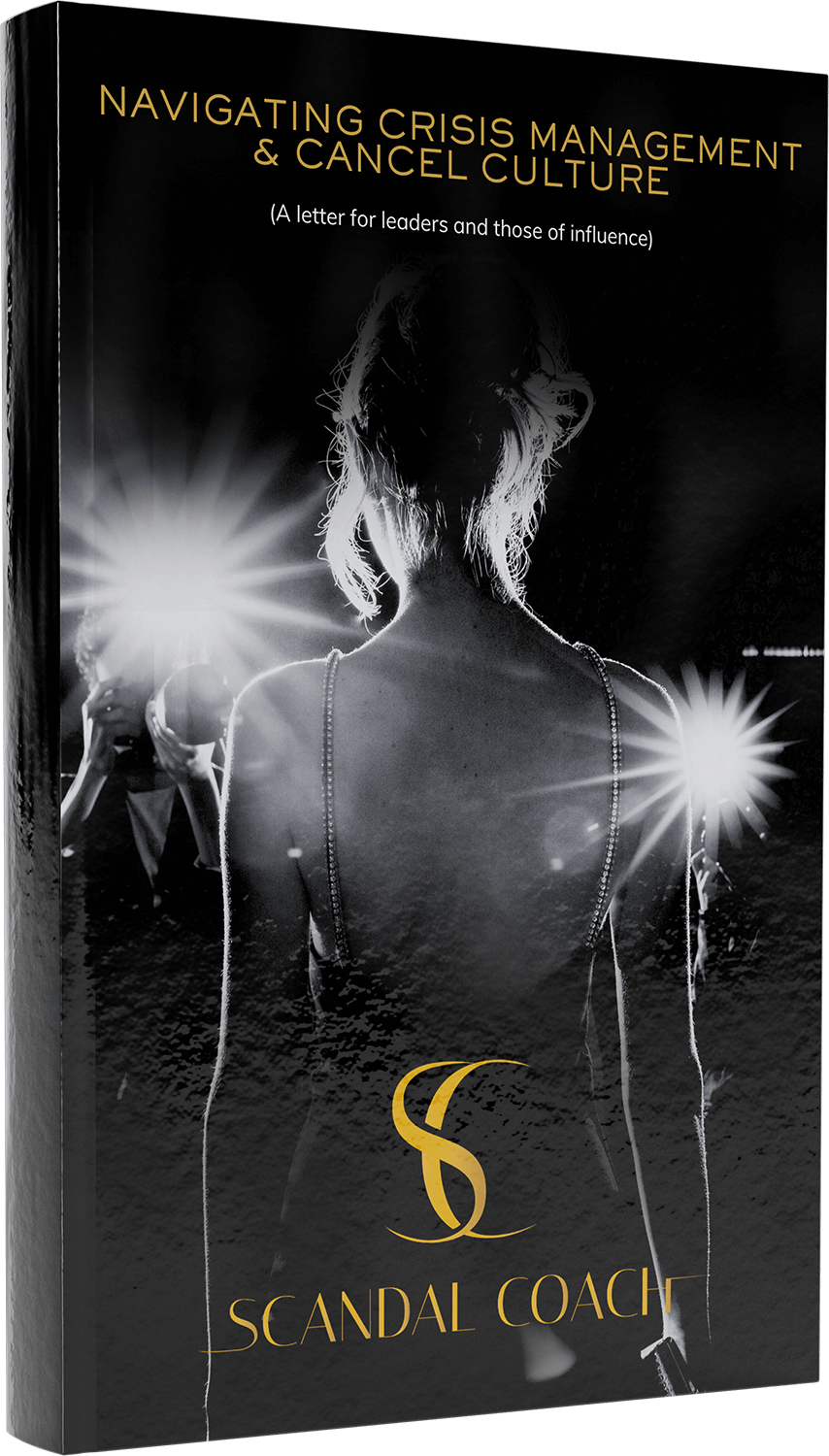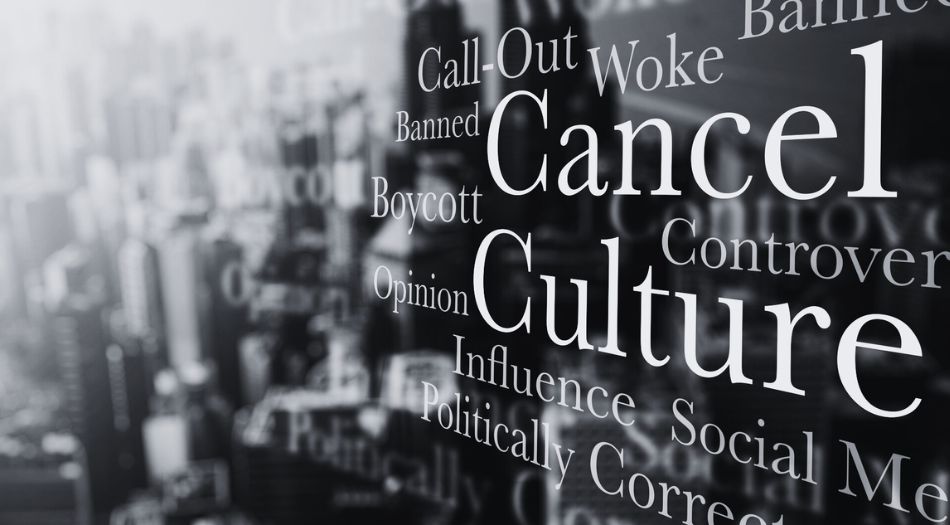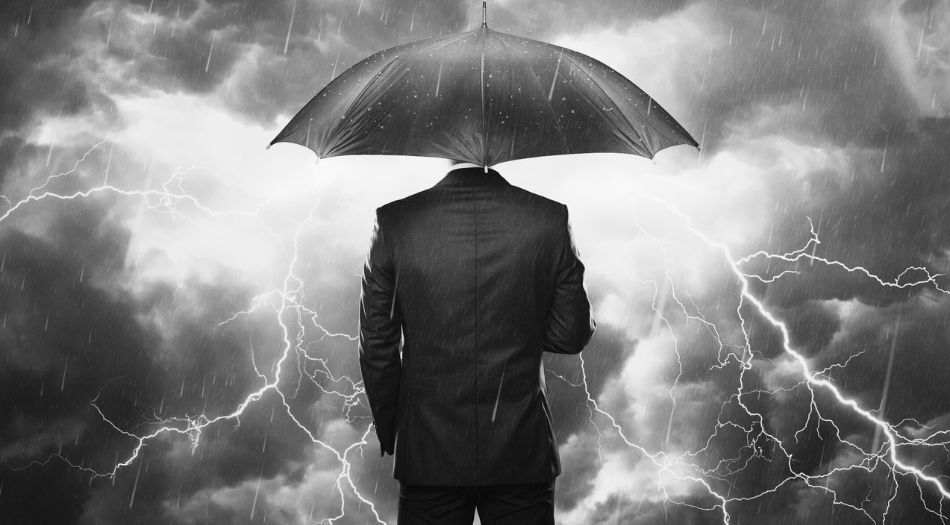Key Takeaways
- Cancel culture has evolved from a form of community-centric social ostracism to an online phenomenon often leading to ostracization in both professional and personal spheres, fueled by mainstream media and intertwined with political correctness.
- While not a violation of the First Amendment, cancel culture can have a chilling effect on free speech, often creating a ‘spiral of silence’ especially for minority views, and calls for a balance between free expression and accountability.
- The psychological and professional repercussions of cancel culture are significant, with notable impacts such as mental health issues for the individuals involved, and strategies for resilience and reputation management becoming increasingly important in its context.
Understanding Cancel Culture: Origins and Evolution
Cancel culture started as a form of social ostracism within the community, marking the cancel culture’s origins. Nowadays, it has morphed, manifesting as online pile-ons that can ostracize someone from their professional and personal circles. The rise of this phenomenon to mainstream recognition is closely tied with political correctness and the democratization of public dialogue through social media.
The current form of cancellation involves exerting pressure on organizations to cancel public appearances or launching boycotts, blurring the lines between public and private lives.

Political correctness and its impact on the term cancel culture
The term ‘politically correct’ entered mainstream discourse in the 1990s, symbolizing moral uprightness and non-offensive language. However, it didn’t remain an innocuous term for long. Originally an in-joke among American leftists, it was soon weaponized by conservatives against the left, transforming it into a pejorative term.
The 1990s saw an upsurge in the use of the term as right-wing figures utilized it to challenge opposing ideologies. Conservatives positioned themselves as victims of political correctness, foreshadowing similar claims within the discussion of cancel culture.
Political correctness and cancel culture are intertwined, shaping the bounds of social acceptability and regulating language and behavior.
Mainstream media's influence on the growth of cancel culture
Mainstream media has played a notable role in fueling the growth of cancel culture, which can be seen as a form of mainstream internet activism. It has amplified Twitter commentaries, making cancel culture appear more widespread than it is considering the small percentage of the population actively engaged in these online platforms.
Furthermore, the media has contributed to a skewed public perception by highlighting extreme examples, which may not accurately represent the majority of cancel culture instances. Local debates that begin on social media platforms can transform into national news stories due to mainstream media coverage, leading to intensified politicization of the concept of cancel culture.
Academics characterize cancel culture as:
- a ‘cultural boycott’
- a demand for accountability and control without centralized authority
- with mainstream media playing a significant role in spreading and framing this concept.
Cancel Culture and Free Speech: Striking a Balance
Balancing free speech and accountability is a societal challenge that comes to the forefront in the context of cancel culture. Cancel culture can suppress free speech by causing a chilling effect on public discourse and amounting to cyberbullying, perceived by some as intolerance. Fear of social media retribution can discourage individuals from voicing their opinions, creating a spiral of silence, particularly in the context of minority or political views.
Political lines often divide views on cancel culture, with conservatives feeling targeted for their beliefs, while liberals focus on the imperative to combat hate speech. Despite concerns over its impact on expression, cancel culture does not infringe upon the First Amendment, which only shields against government-imposed speech penalties, not those from private parties.

Civil rights movement and its connection to cancel culture
Cancel culture shares historical parallels with the civil rights movement’s use of boycotts as a form of protest, such as the significant Montgomery bus boycott initiated by Rosa Parks. Pop culture figures like Akala utilize their platforms to address societal injustices, echoing the mobilization spirit found in the ethos of cancel culture.
However, it’s important to distinguish between productive activism, which involves organizing and strategizing, and the often simplistically perceived actions of online blaming and shaming associated with cancel culture.
The justice system's role in addressing harmful behavior
The justice system and cancel culture represent distinct approaches to addressing harmful behavior. Here are the key differences between the two:
- The justice system operates on legal principles, relying on legal procedures and evidence.
- Cancel culture involves public opinion and social pressure, often resulting in immediate social verdicts based on public opinion.
- The justice system requires rigorous proof and follows a set of legal procedures.
- Cancel culture may not always require rigorous proof and can be influenced by public opinion.
The practice of cancel culture can lead to collateral consequences for the individuals involved, mirroring the punitive nature of the criminal justice system and its impact on the rehabilitation of wrongdoers.
Controversial cases involving public figures and cancel culture
“Cancel culture thrives on fear and division, but at Scandal Coach, we believe in a different approach. Our winning strategy isn’t about avoiding mistakes or hiding from scrutiny. It’s about embracing authenticity, owning your story, and navigating challenges with resilience and grace. In a world quick to judge, we empower our clients to reclaim their narrative, rise above the noise, and emerge stronger than ever before.”
Public figures face consequences through cancel culture that can affect their careers in significant ways. Controversial actions and personal indiscretions can lead to financial losses, legal issues, and public criticism, as seen in the cases of Andrew Cuomo, Kanye West, Kris Wu, and Elon Musk, among others.
Cancel culture can inhibit the free exchange of ideas and discussions on social issues. This is evidenced by the public backlash experienced by figures like:
- David Shor
- Johnny Depp
- Amber Heard
- Adam Levine
It’s worth noting that the impact of cancel culture on individuals can be disproportionate, depending on their position of power. Those not in power can suffer greatly and in very different ways.

THE GUIDE:
NAVIGATING
SCANDALS IN 2024
AND BEYOND
The Psychological and Professional Impacts of Cancel Culture
Individuals targeted by cancel culture can experience severe psychological distress, including anxiety, depression, and PTSD-like symptoms due to public shaming and stress. People with higher levels of Neuroticism may be more vulnerable to the negative impacts of cancel culture, while Cognitive Dissonance theory provides insight into how individuals might defensively react when faced with public criticism.
Cancel culture fosters ‘us versus them’ dynamics, potentially leading to conflict, alienation, and extra strain on individuals’ mental well-being. Professionally, being ‘canceled’ often results in severe consequences such as job termination, difficulties in securing future employment, and enduring reputational harm. Groupthink within social media can amplify cancel culture’s punitive nature, discouraging dissenting opinions and leading to a more unilateral and potentially unjust social response.

Monica Lewinsky's work on managing public shaming
Monica Lewinsky, a notable figure publicly shamed in the late ‘90s, has become an advocate for managing public shaming, using her platform to address the issue.
Strategies for resilience and reputation management
“Cancel culture doesn’t just impact your reputation; it can deeply affect your mental well-being and professional trajectory. At Scandal Coach, we understand the psychological toll of being targeted and ostracized. Our approach goes beyond damage control; we provide holistic support to help individuals rebuild their confidence, restore their sense of purpose, and reclaim their place in society. Because resilience isn’t just about bouncing back—it’s about thriving despite adversity.”
Living in the era of cancel culture, it becomes paramount to have strategies for resilience and reputation management. Proactive reputation management, including constant media monitoring and having a crisis management plan ready, is essential for staying informed about public perception and quickly addressing potential public relations challenges.
Identifying and engaging with key influencers and stakeholders is crucial for opening meaningful dialogues and mitigating negative perceptions during cancel-culture events. Performing cultural-sensitive research helps in creating content that is mindful of cultural nuances, thus preventing culturally insensitive material that could harm a company’s reputation, especially those operating on an international scale.
Sentiment analysis plays a pivotal role by providing early warnings of potential negative reactions to a brand’s crisis management efforts, which is vital for early intervention ahead of potential cancellation storms.
The role of social media platforms in amplifying cancel culture
Social media platforms facilitate the rapid spread of public criticism and ostracization, leading to reputational damage and financial loss for individuals and organizations. Public opinion is divided regarding social media-fueled cancel culture; some see it as a means for positive change and constructive dialogue, while others believe it fosters conflict and entrenches divisions.
Implementing sentiment analysis to gauge public reactions and identifying key influencers are critical strategies in managing and potentially mitigating the effects of cancel culture on social media. The societal trend of increased time spent on social media, alongside the amplification of historically marginalized voices, has fundamentally reshaped public discourse and consequences for individuals, as highlighted by Monica Lewinsky’s anti-bullying advocacy.

Cancel Culture and Marginalized Communities: Empowerment or Suppression?
Cancel culture has been recognized as a method for marginalized individuals to wield influence and address structural inequalities. Movements like #MeToo and Black Lives Matter have utilized cancel culture to spotlight issues of sexual abuse and racial inequality, demonstrating how marginalized groups can use this tool to voice their challenges.
Some proponents believe that calls for ‘cancellation’ act as a form of free speech that promotes accountability, particularly when the justice system does not. On the flip side, critics advocate for ‘calling in’ instead of ‘calling out’, suggesting a more constructive and empathetic way to foster accountability without suppression.

Pop culture's role in promoting social justice issues
Pop culture can amplify social justice issues by providing a platform for marginalized people to be heard and for calling attention to systemic inequalities. Publications like Gal-dem and Consented Magazine are examples of how pop culture media can create spaces for marginalized voices and facilitate discussions on political and social justice.
The podcast ‘Wonderland’ exemplifies how pop culture innovators and social change leaders can collaborate to foster positive societal transformation. The concept of ‘silence equals agreement’ underpins the belief of some individuals that it is important to vocally oppose offensive content to avoid tacitly condoning it and to encourage societal change.
Sexual abuse allegations and the #MeToo movement
Around 2017, cancel culture gained significant traction, particularly influenced by the #MeToo movement, which led to the public denouncing of individuals accused of sexual misconduct, including sexual assault. The #MeToo movement has engaged call-out culture as a tool for victims, especially women, to openly address their abusers, giving marginalized groups a platform to share their experiences and seek justice.
Celebrity figures like actor Evan Li have faced significant repercussions, including loss of brand deals and public backlash, after being accused of sexual misconduct, highlighting the tangible effects cancel culture can have on individuals.
Criticism of cancel culture as a means of punishment
Critics argue that cancel culture often lacks nuance and does not allow for due process or redemption, leading to unwarranted punishment and suppression of individuals for past actions or statements. Some of the concerns raised about cancel culture include:
- Taking statements out of context
- Not gathering all the facts before passing judgment
- Causing unfair punishment and consequences without allowing for growth or change
While cancel culture can be a powerful tool for holding individuals accountable, it is important to consider these criticisms and strive for a more balanced and fair approach.
The idea of ‘calling in’ instead of ‘calling out’ is proposed by an assistant professor as a more educational and less punishing approach to addressing offensive content on social media. The absence of tone in online communication contributes to misinterpretations that can lead to disproportionate consequences within cancel culture.
There are concerns that cancel culture can result in reverse discrimination, such as targeting individuals for their skin color, particularly White individuals, leading to contextually inappropriate accusations of racism.
The Future of Cancel Culture: Rebranding or Reform?
The future of cancel culture may involve rebranding or reform. Media commentators, including LeVar Burton and Sunny Hostin, have suggested renaming ‘cancel culture’ to ‘consequence culture’ to better reflect holding individuals accountable for their actions.
However, cancel culture has also been critiqued as a platform for virtue signaling, where individuals may assert moral superiority, contributing to hypersensitivity and overreaction to perceived offenses.

LeVar Burton and Sunny Hostin's suggestion to rebrand cancel culture
LeVar Burton has defended cancel culture and suggests renaming it to ‘consequence culture’, emphasizing that people should be held responsible for their actions and statements, along with their impacts on others. In our opinion, this presupposes the person at the receiving end of being cancelled did indeed “do the wrong thing.”
Recognizing accountability is crucial in any situation, and framing it as consequences rather than condemnation fosters a more constructive dialogue. Our work revolves around guiding individuals through accountability, growth, and ultimately, redemption. By embracing this mindset shift, we empower our clients to confront their actions, learn from them, and emerge stronger and more resilient.
Conversely, At Scandal Coach, we understand the devastating impact of unjust cancellations. In instances where individuals face unwarranted cancellation despite their innocence, we provide unwavering support and guidance. Our mission is to navigate the storm of false accusations, restore dignity, and empower individuals to reclaim their narrative. We stand firm in our commitment to championing fairness, justice, and the truth in the face of adversity.
Public opinion on cancel culture, as shown by Pew Research Center data
About 44% of Americans have heard at least a fair amount about cancel culture, showcasing public awareness of the concept. The awareness of cancel culture is significantly higher among younger Americans, aged 18–29, with 43% reporting that they have heard a great deal about it. In contrast, only 12% of those over the age of 65 have the same level of awareness.
Men are more likely than women to have heard of cancel culture, and there is a slight difference in awareness between Democrats (46%) and Republicans (44%). Among those who are aware of cancel culture, 49% view it as a means to hold others accountable, while 14% consider it censorship of speech or history.

The role of education and open debate in addressing ideological differences
Education and open debate play a crucial role in addressing cancel culture. Here are some strategies to consider:
- Educators should emphasize the necessity of focusing on teaching discussion and debate skills to empower students and foster mature, ethical dialogue.
- Open debate and education are seen as pivotal in addressing cancel culture, facilitating a more nuanced understanding and reducing divisiveness.
- Integrating themes like ‘wokeness’ into education can encourage critical thinking and a deeper understanding of social issues.
- Prioritizing listening skills can help students engage in respectful and productive conversations.
- Avoiding generalizations can encourage empathy and a nuanced approach to ideological differences among students.
By implementing these strategies, we can create an environment that promotes open-mindedness and constructive dialogue.
There is a call to look beyond social media reform and delve into deeper societal change, including efforts to change structural inequality, with criminal justice reform and strategies for reintegration after misconduct.
Cancel Culture: Your Next Steps
Cancel culture has evolved into a significant social phenomenon, influencing and being influenced by political correctness and mainstream media. It often leading to a chilling effect and cyberbullying. The psychological and professional impacts are profound, causing severe distress and reputational damage.
Scandal Coach has worked with thousands of leaders and influencers, helping them to navigate the terrain of cancel culture, emerging empowered and enlightened leaders. To understand more about our process and the Scandal Coach philosophy, download our guide to Cancel Culture here:




